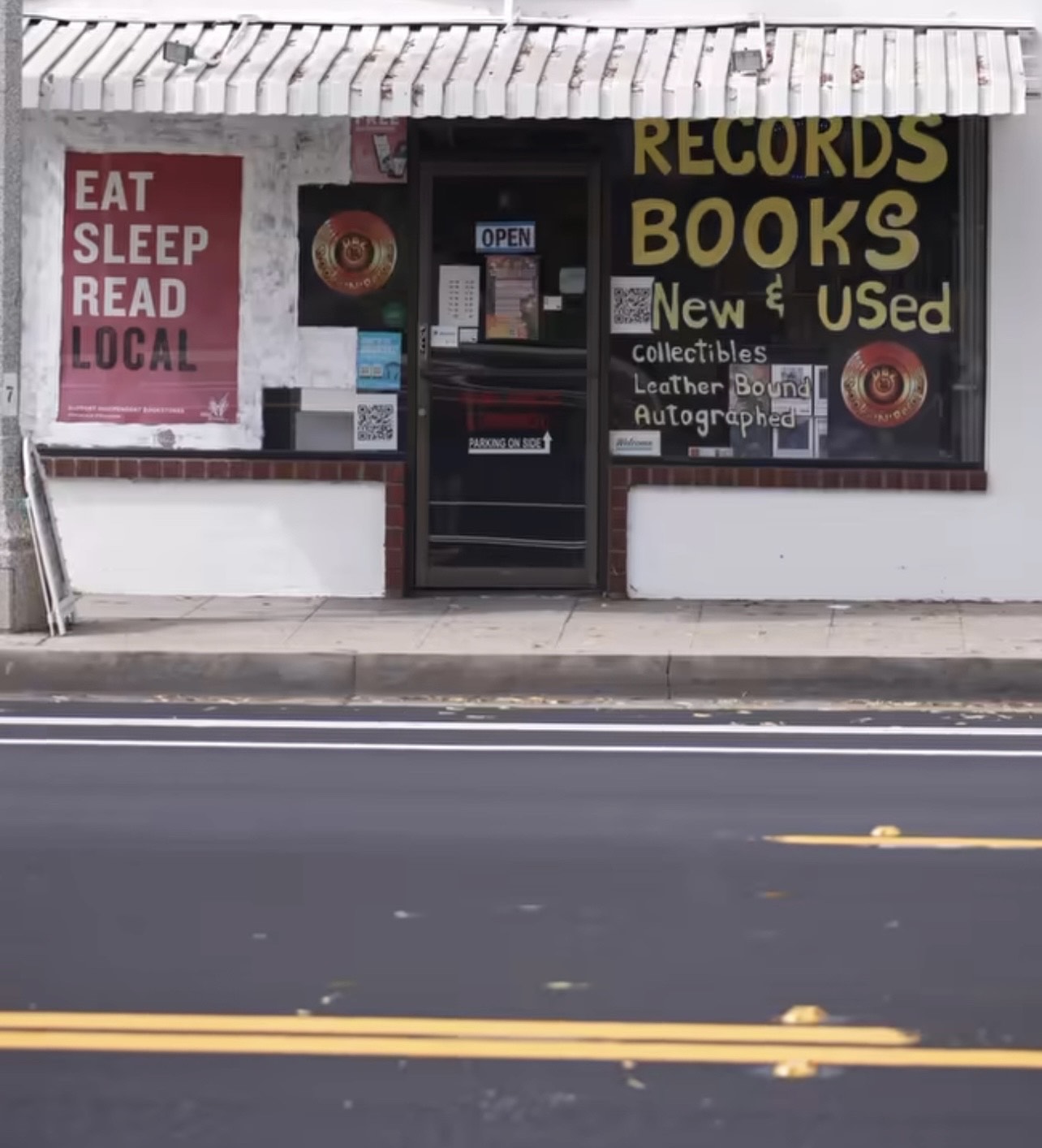
Be Sure to Wear Flowers in Your Hair
Published on Jan 19, 2026
WALK OUT TO WINTER: falling in love with—and to—Aztec Camera's High Land, Hard Rain
Published on Dec 26, 2025
First Anniversary
Published on Dec 17, 2025
Introducing: The IHTOV Zine
Published on Dec 15, 2025
More Liner Notes…
Featured Essay: The Record Store That Raised Me
by Lauren Bennett

The shop didn’t even have a name on the front—just a faded neon “OPEN” sign that blinked half-heartedly in the window. Everyone just called it “Rick’s,” after the guy who ran it. It was tucked between a pawn shop and a shuttered laundromat on the quieter end of Main Street, and from the outside, it looked like nothing. Inside, though, it was everything.
Rick’s wasn’t just a record store. It was my church, my classroom, my after-school program, and—maybe most importantly—my first real sense of belonging.
I started going when I was fourteen. I was a loner with a chipped iPod shuffle, an awkward haircut, and the desperate kind of hunger that only teenagers have—for meaning, for coolness, for sound. I’d bike there after school, park outside, and step into a world thick with dust, cardboard, and the holy smell of old vinyl.
The bins were too tall for me to flip through comfortably at first, but I’d lean in anyway, dragging my fingers across albums I didn’t recognize. The walls were plastered with flyers for bands I hadn’t heard of, tour dates from a decade earlier, and hand-scrawled notes like “DON’T TOUCH UNLESS YOU PLAN TO BUY.” Rick always had something playing—Tom Waits, or Mingus, or the Replacements—and the place never felt quiet, even when it was just the two of us.
Rick himself was gruff but kind. He wore a denim vest year-round, drank instant coffee from a thermos the size of my head, and had a knack for recommending exactly the record you didn’t know you needed. He never made fun of my dumb questions. He just pointed. “Try this instead.” That’s how I discovered Patti Smith, The Clash, Big Star.
More than once, I spent the last of my babysitting money on an album just because Rick told me to. He never upsold. If anything, he talked me down—told me not to bother with the reissue if the original pressing was scratched just right. That’s where I learned the difference between collecting and consuming. Between having music and loving it.
Rick taught me how to listen front to back. No skipping, no shuffle. “An album,” he said once, “is a place. You don’t teleport into the middle of a place. You go there.” So I went—to dusty corners of folk and funk, Japanese noise rock, lost psych gems. Each one was a new landscape. The liner notes were scripture.
And I wasn’t the only one making pilgrimages.
There was Marcus, who wore leather jackets in the middle of summer and knew every single lyric to London Calling. Jamie, who made mixtapes on actual cassettes and handed them out like business cards. Lena, who introduced me to riot grrrl and gave me my first DIY zine. We were all misfits in our own ways—too loud, too weird, too queer—but in Rick’s, we weren’t “too” anything. We just were.
Looking back, I see how much of that space was held together by informal magic: the kind that happens when someone believes that art is worth archiving and kids are worth listening to. There were no workshops, no official mentorships, no community bulletin board. Just a guy who kept his door open and a bunch of teenagers who wandered in looking for sound and found each other.
That record store didn’t just shape my taste—it shaped me. It gave me opinions, taught me to trust them, and showed me that there was more to music than what the radio fed you. It made me brave enough to like the weird stuff. And to admit what I loved, even when it wasn’t cool.
I bought my first Velvet Underground album there. My first heartbreak album (Blue, Joni Mitchell). My first record I bought just for the cover art. I fell in love for the first time while listening to a bootleg of a Neutral Milk Hotel live show, taped on a Maxell and passed around like contraband. We held hands in the back of Rick’s once. I think he pretended not to see.
Rick’s closed the summer I left for college. I showed up one day and the windows were papered over. No goodbye. No clearance sale. Just silence.
I still think about that place all the time. About how those few square feet of linoleum and milk crates and music raised me in ways school never did. I’ve lived in three cities since then. I’ve written about music, interviewed artists, helped younger writers find their voices. But part of me is still fourteen, fingers hovering over a dusty LP, wondering if this one will change my life.
A record store is more than a place to buy records. It’s a room full of doorways. It’s an ecosystem of taste, memory, and care. And for kids like I was—awkward, searching, maybe a little lost—it’s one of the last real sanctuaries.
There are fewer of them now. Streaming took over. Discogs replaced the crate-dig. But here and there, they still exist. And every time I step into one, I find myself scanning for a Rick. I still listen front to back. I still write people into liner notes that don’t exist.
I owe that store more than I can name. So here’s my love letter. To the bins, to the speakers, to the grumpy owner with the soft heart. To the place that raised me.
Thanks, Rick.
Lauren is a writer whose work has appeared in Business Insider, Naked Politics, and other blogs. She writes about culture, memory, and the quiet places where identity takes root.

